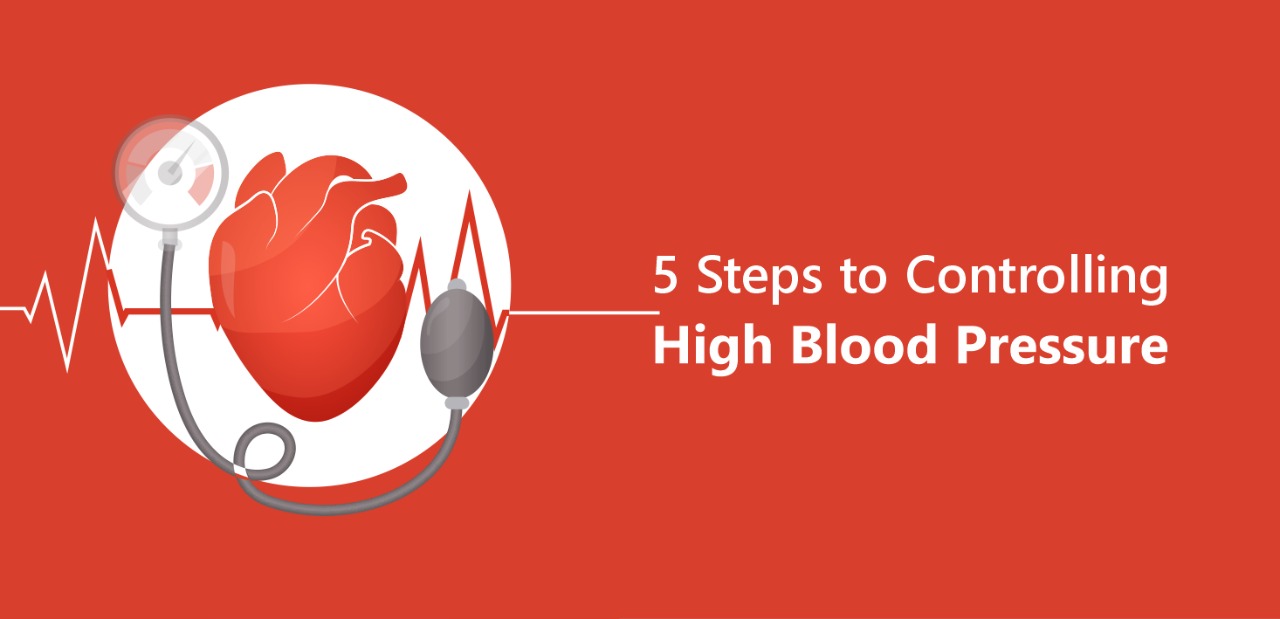

During a typical doctor's visit, a health expert will frequently check your blood pressure. The screening is non-invasive and non-stressful, often taking as little as a minute to complete. Assurance prescribes you this 3-minute read which is about 5 steps to controlling high blood pressure! Relax cause now you will know what to do & what not to do when it comes to your heart.
However, the findings of this easy test may indicate the presence of a condition that, if treated properly, may help minimize your risk of heart attack or a stroke. Do you know why high blood pressure is frequently referred to as the "silent killer”? Because it causes substantial artery damage, resulting in heart disease and stroke. According to the WHO, about one in every three persons in India has hypertension, and since there are no early signs, many remain ignorant of the problem for years. Read on to understand the 5 steps to controlling high blood pressure.
A hypertension screening in a doctor's office can establish whether your blood pressure is normal or excessive. Health professionals like community healthcare workers, doctors, nurses and even pharmacists can educate p[eople about the risk involved in fluctuating blood pressure levels. They can offer better information about the associated health problems, medications to control the disease and propose lifestyle changes.
The Assurance Hypertension disease management program is an attempt to encourage adults to take control of their blood pressure by a variety of lifestyle changes, including the following:
1. Understand your numbers:
The first step is to understand your blood pressure and your BP readings. Blood pressure isn’t just limited to the flow of blood throughout the body. It is the force exerted by blood against the artery walls while the heart pumps blood. Consult the health care provider at Assurance to establish your personal blood pressure goals and treatment option if your readings are too high. This is essentially one of the most important of the 5 steps to controlling high blood pressure.
2. Eat sensibly:
An excessive sodium (salt) intake can cause the individual to retain fluid, resulting in elevated blood pressure. Potassium can aid in the body's sodium equilibrium. Bananas, plain roast potatoes, avocados, and stewed white beans are all potassium-rich foods.
3. Maintain an active lifestyle & take medications on time:
On average, more physically active persons have lower heart rates, which indicates the heart works less hard when it contracts, alleviating pressure on arteries. Ideally, adults should exercise for at least 30 minutes every day.
Your doctor will prescribe that you appropriate medication to help sustain a steady blood pressure level. Ensure that you follow the guidelines for taking the meds exactly to ensure that you get the maximum benefit from them.
For more clarity, do consult a doctor associated with Assurance.
4. Alleviate stress:
Many Americans cope with stress by eating more, exercising less, drinking, or smoking. Additionally, a stressful scenario can temporarily elevate blood pressure. Walking and medication are two healthy ways to cope with stress or take your mind of stressful events.
5. Limit alcohol consumption and prohibit cigarette use:
Consuming an excessive amount of alcohol over time might be detrimental to the heart. Women are advised to limit themselves to one drink per day, while men are advised to limit themselves to two drinks per day to avoid a sharp shift in blood pressure. Tobacco use and exposure to secondhand smoke can instantly elevate blood pressure and cause severe damage to the artery lining. Consult a cardiologist with Assurance for better information and social drinking tips.
Following the above-mentioned 5 steps to controlling high blood pressure will definitely help you- #Promise of Assurance.
How Frequently Should You Have a BP Screening?
Because blood pressure can fluctuate over time, it is critical to have it checked frequently. This raises the probability that you will see a change before it grows unsafe.
As you grow, your risk of contracting high blood pressure rises. This means you'll need to come in more frequently for testing. Every grown-up over the age of 40 should have blood pressure monitored once a year, at least.
Between the ages of 18 and 40, you can accommodate to go less frequently. It's a good idea to have a checkup every 3 to 5 years.
So, why wait? Book a lab test for yourself or your family members with Assurance today!
Also read 10 Powerful Ways to Improve Your Heart Health & Early Warning Signs of Sudden Cardiac Arrest to be better aware & prepared.
How can Assurance help me?
Assurance by NanoHealth provides Disease Management Programs, including PCOD care, infertility, Heart care, etc.
Why us? Our AI-driven initiative helps timely identification, diagnosis, and treatment by pairing you with the right care providers.
Our disease care management programs include:
- Regular interactions with your health coach for treatment adherence.
- Periodic doctor consultations to ensure effective treatment.
- Routine blood tests to track the progress and improvements.
The 200 days thyroid Management Program offered by Assurance includes video calls with the dietician, health coach and a doctor of internal medicine.
Assurance is with you every step of the way until maximum health and wellness are achieved.
